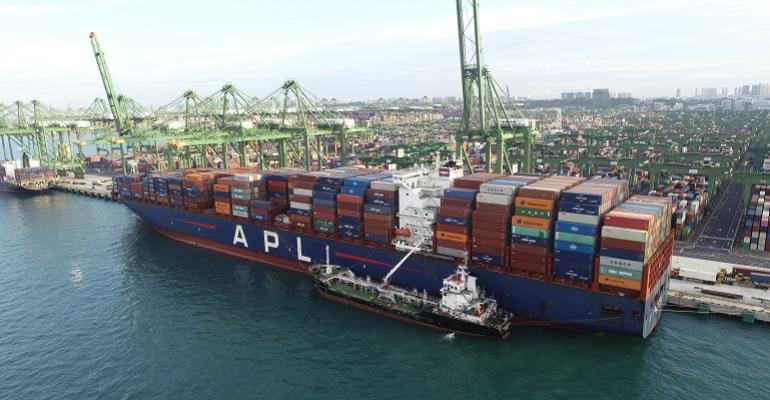The 18-strong coalition said it has committed $18m in cash and in-kind services to “establish an assurance framework for ensuring the supply chain integrity of current and future green marine fuels.”
From August 1, a 12–18-month pilot scheme will use BunkerTrace tools to track fuels all the way from production to propulsion, using molecular verification tests at multiple points along the supply chain to validate the authenticity of sustainable biofuels. The pilot will involve 12 vessels bunkering at three ports across three continents.
“Hence, the pilot will address traceability of drop-in biofuels from production, distribution, transportation, storage, and bunkering to shipboard application, providing end-to-end supply chain transparency,” said the coalition.
The framework created by the pilot aims to increase supply chain transparency for current drop-in biofuels with a view to extending the programme to future biofuels when they reach significant market volumes.
By addressing concerns in the market about the integrity of the biofuel supply chain, the consortium hopes to lower barriers to adoption of biofuels and increase market uptake of the greener and more expensive fuels.
“Designed through the lens of the shipowner, piloting will start with fuel blends involving existing biofuels, such as hydrotreated vegetable oil (HVO) and fatty acid methyl esters (FAME) blended with either very low sulphur fuel oil (VLSFO), high-sulphur fuel oil
(HSFO) or marine gas oil (MGO) in blends up to 30% biofuels (B30),” said the coalition.
The ship owners, charterers and operators in the pilot represent around 2,300 vessels across containerships, tankers and bulkers, transporting around 8.4m teu or 80.6m dwt globally.
Unni Einemo, Director of the International Bunker Industry Association (IBIA) said: “A variety of biofuels and biofuel blends have already been successfully tested, but this comprehensive pilot can help address remaining uncertainties about how these fuels work in practice by getting extensive end-user operational experiences with products involving FAME and HVO, and hopefully also crude algae oil.
“The tracing element in this pilot is also really exciting. Biofuels have the potential to help the existing fleet meet IMO’s GHG reduction targets by taking lifecycle emissions into account, but one of the challenges will be certification of product origin as the sustainability of biofuels can vary significantly depending on production pathways. Biofuels can be blends coming from feedstock with different sustainability profiles, so it will be interesting to see if the DNA tracing will show mainly single-source origin products or biofuels of multiple origins. This could give us some really useful insights into the complexities of documenting the full supply chain of fuels, which will become increasingly important.”
GCMD called for crude algae oil (CAO) producers to join the project and use the trial as an assessment of third-generation CAO as a marine fuel.
The industry coalition behind the pilot and project comprises: Anglo American, Astomos Energy Corporation, Boston Consulting Group, BHP Singapore Pte Limited, BunkerTrace Limited, Chevron Corporation, CMA CGM S.A., Eastern Pacific Shipping Pte. Ltd., Hapag-Lloyd AG, MAN Energy Solutions SE, Nippon Yusen Kabushiki Kaisha, Ocean Network Express Pte. Ltd., Pacific International Lines (Pte) Ltd., Saybolt (Singapore) Pte Ltd, Stena Bulk AB, Swire Bulk Pte. Ltd., VG (Viswa Group), and VPS.
Copyright © 2024. All rights reserved. Seatrade, a trading name of Informa Markets (UK) Limited.
Add Seatrade Maritime News to your Google News feed.  |

